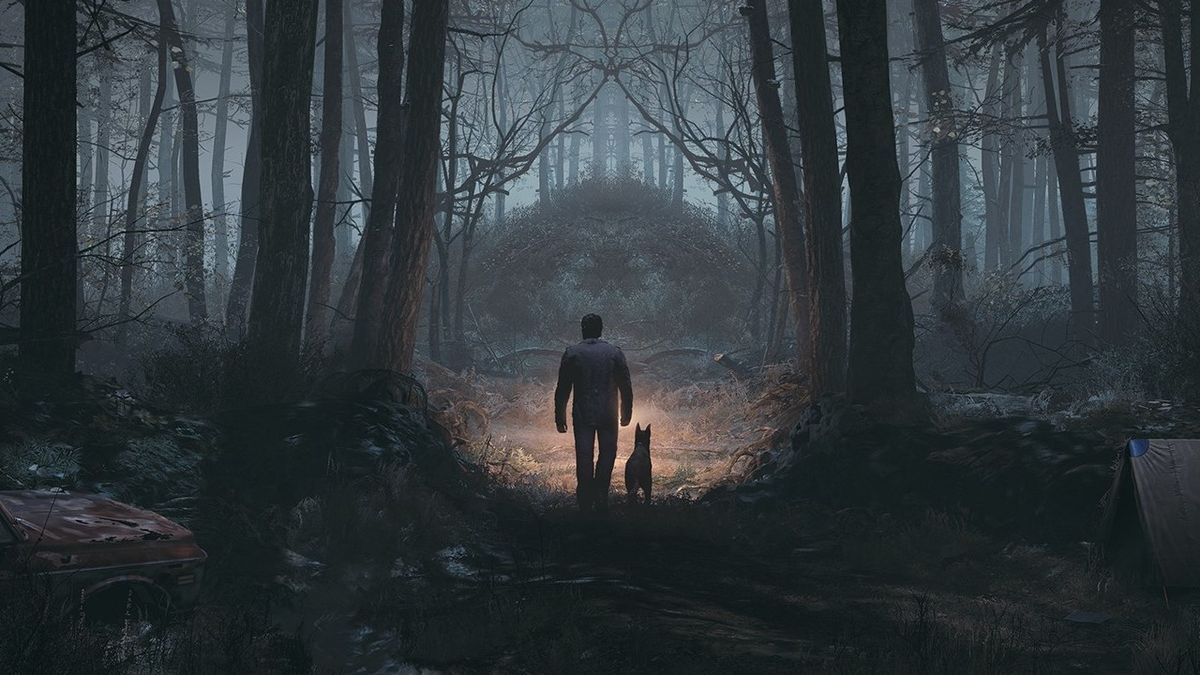There’s a certain fun to the incomprehensible. Nippon Ichi (best known for its work on the Disgaea series) knows this idea well, a fact evidenced by its most recent effort, The Witch and the Hundred Knight. That said, constant whimsy can be exhausting, and that fact is also on display in Witch. While it’s an enjoyable absurdity in many ways–thanks to its odd brand of humor, addictive battle system, intriguing gameplay elements, and expansive environments–it will eventually grate on you. You may just wish for a side of structure to go with the crazy.
The biggest downside to Witch comes in its story, and the characters that fill it. You play as a mute blob of darkness named Hundred Knight and are directed by a boisterous and foul-mouthed witch named Metallia, ruler of the swamp. Her goal–and therefore yours–is simple: activate giant protective pillars scattered throughout the world in order to (somehow) expand her swampy dominion. The plot largely serves as an excuse to get Hundred Knight from point A to point B and is told through unnecessarily long cutscenes where characters say in 10 minutes what they could have said in two. It’s also overly intrusive on the gameplay, cutting the action off to shoehorn in more cutscenes that accomplish almost nothing. Add in the fact that the characters are largely one-dimensional, and it won’t be long before you’ll be gnawing your controller to get back to playing Hundred Knight, because at least he’s quiet.

To add some color to this simple framework, Witch heaps on a generous helping of bizarre, goofy, and downright vulgar humor. While jokes about feeling people up and Metallia’s creative insults (subtitled as #*&!^, naturally) become run-of-the-mill, the game finds a way to shock the player in new and sometimes unsettling ways–if Metallia’s knight “friend” isn’t showing up naked in the swamp, adorable critters are cannibalizing an unsuspecting witch as Metallia cackles with glee. While some players with softer sensibilities might find these displays crude, many will likely press on out of sheer curiosity over what the game will lob their way next. In addition, fans of meta-humor will be pleased with Witch, as it offers a slew of lampshading and fourth-wall breaking to up the silliness factor.

While humor sets the tone, the meat of Witch comes in the gameplay, which seeks to make up for the game’s simplistic premise by being almost overly complicated. The battle system, a real-time action setup that can be gracefully played or button-mashed through with equal ease, is no cause for concern, but the user interface can be intimidating. There are no less than seven different gauges to keep track of, from basic HP to a gauge for single-stage level boosts, in addition to weapons (of which you can equip five) and stat-changing jobs called facets. The game actually feels the need to say it’s really is easy, don’t worry when things get rolling. However, to its credit, these elements are only troubling at the beginning, and they play into each other well enough that they quickly become intuitive.
Unique among these gameplay mechanics is the GigaCal meter, which starts at 100 when Hundred Knight enters an area and approaches 0 as he expends energy. While maintaining the GigaCount can be frustrating at first (especially when it hampers progress), it eventually turns into an interesting challenge, making the player consider how best to approach each situation when high-energy solutions would be helpful now, but could cost you later. With all these factors to consider, Witch starts to take on a resource-management feel, making it more thoughtful than a simple hack-and-slash. It then gives the player an expansive open world in which to use the tools she’s been given, with Hundred Knight exploring, raiding, and battling through a series of colorful landscapes.

It’s worth noting that this game is not going to hold your hand. While it does offer a brief introduction to basic concepts, after that it pushes you off the deep end and tells you to swim. There is no tutorial menu, no objective clues, and if you aren’t paying attention it’s easy to miss the one (very) well-hidden item you need to progress beyond a given point. Also, information about critical aspects of the game, like item collecting and which buttons do what, is relegated to randomly generated slides in the loading screen, so don’t expect a quick answer if you happen to forget. For a game that boasts gameplay as its strongest component, this lack of information can be forbidding for players not used to the genre and frustrating even for those who are.

The Witch and the Hundred Knight could ultimately be so much more than it is. Born from a simultaneously simple and intimidating premise, it excels in creating engaging gameplay mechanics and a colorful world to explore with them. This strong showing makes the lack of guidance and information frustrating for all but the most independent players, and the story built atop it is far too thin to be wedged in as often and insistently as it is. If you can handle a meh-worthy narrative and some bizarre omissions for an overall fun experience, you’ll probably like this magical romp, despite the bumps and bruises along the way.

The Witch and the Hundred Knight is a promising effort, delivering an engaging gameplay experience and an expansive world. While it’s hampered by overlong cutscenes and bland characters, it will satisfy fans of the genre, and maybe make a few more.
 Game News Video Games Reviews & News
Game News Video Games Reviews & News



